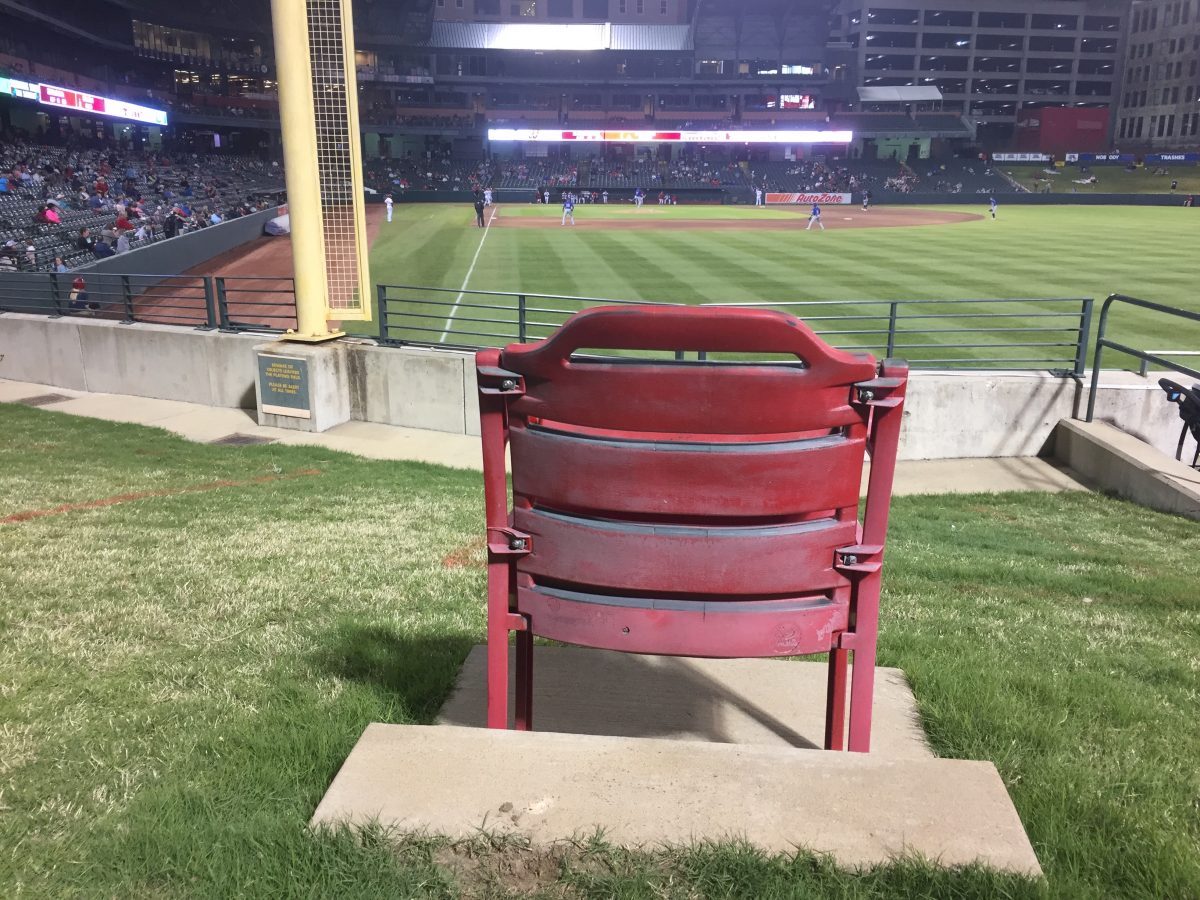When news broke last Thursday that the Los Angeles Angels had released Albert Pujols — the Albert Pujols — my thoughts turned to a red seat at AutoZone Park. A solitary, some would say lonely red seat that rests (mounted on concrete) on the rightfield bluff of the ballpark, just inside a foul pole. On September 15, 2000, a 20-year-old Pujols — a late season promotion from Class A — laced a line drive just fair for a 13th-inning, walk-off home run that gave the Memphis Redbirds their first Pacific Coast League championship in the stadium’s inaugural season. Had the player who hit that baseball never reached the major leagues, it would be one of the greatest moments in Memphis sports history. The man who hit that baseball, of course, became the most accomplished player — to date — of the 21st century and an all-time great.
There’s no such thing as a quick review of the Albert Pujols Hall of Fame resumé. Having played a total of 14 games above Class A (during that championship run with Memphis), Pujols made the St. Louis Cardinals’ roster in 2001 and ran away with National League Rookie of the Year honors, batting .329 with 37 home runs and 130 RBIs. He won the National League MVP award three times (and finished second in the voting four more). On the scale that matters most, he helped the Cardinals to the playoffs in seven of his 11 seasons with the franchise, earning three National League pennants and two World Series championships (in 2006 and 2011).
As a Cardinal, Pujols hit the gold standard in the Triple Crown categories — a .300 batting average, 30 homers, 100 RBIs — 10 consecutive years. He remains the only baseball player to accomplish such a decade-long stretch of numerical greatness. Think of your favorite legends: Hank Aaron, Babe Ruth, Willie Mays, Mickey Mantle, Ted Williams, Stan Musial, Frank Robinson. None of them went .300/30/100 10 years in a row. More recent superstars who put up gargantuan numbers (with the help of performance enhancers), guys like Barry Bonds or Alex Rodriguez . . . they didn’t pull it off either. Over that decade with St. Louis (2001-10), Albert Pujols established a baseball statistical club of one.
Then came the L.A. years. Pujols shocked the baseball world by heading west after the 2011 season, signing a 10-year, $240 million contract with the team Vin Scully did not describe. While “The Machine” climbed various charts and hit major milestones — 600 home runs and 3,000 hits — with the Angels, his performance gradually faded, and his team never won so much as a single playoff game. After batting .328 with 445 home runs and 1,329 RBIs in 11 years with the Cardinals, Pujols hit .256 with 222 homers and 783 RBIs in a now-abbreviated 10 years with the Angels. Unable to crack the fabled Mendoza Line this season (.198 in 92 plate appearances), Pujols departed Los Angeles not with the ceremony worthy of a legend, but with a pink slip. The Angels will pay Pujols upwards of $30 million this year . . . not to play for them.
Speculation begins now. Has Pujols entered a batter’s box for the last time? Might another American League team — one that could use a designated hitter — sign Pujols and put him in the lineup on a daily basis? And the juiciest rumor of all: Might Pujols return to St. Louis for some form of limited action and a farewell tour that would, indeed, feature ceremony after ceremony, one ballpark after another?
For now, I choose not to speculate for what remains in the sunset of Albert Pujols’s singular career. I like the memory of September 15, 2000, when upwards of 10,000 Memphis baseball fans got to know him before the world did. He wore number 6 when he hit the home run that spawned that red seat at AutoZone Park. (Redbirds management had the good sense to leave the seat in place when hundreds of others were removed during renovations a few years ago.) The number 6 has long been retired by the Cardinals in honor of the franchise’s greatest player, Stan Musial. No one in downtown Memphis 21 years ago knew that the streak across the sky we just witnessed was a baseball comet on his way to hitting more home runs as a Cardinal than anyone except Stan the Man.
Legends tend to grow gradually, shaping time and space — sometimes a baseball diamond — with their mighty impact. But the birth of a legend? That’s an instant. Blink and you’ve missed it. The Albert Pujols legend was born in Memphis. It’s about time we recognize that red seat for what it’s become: a throne.
